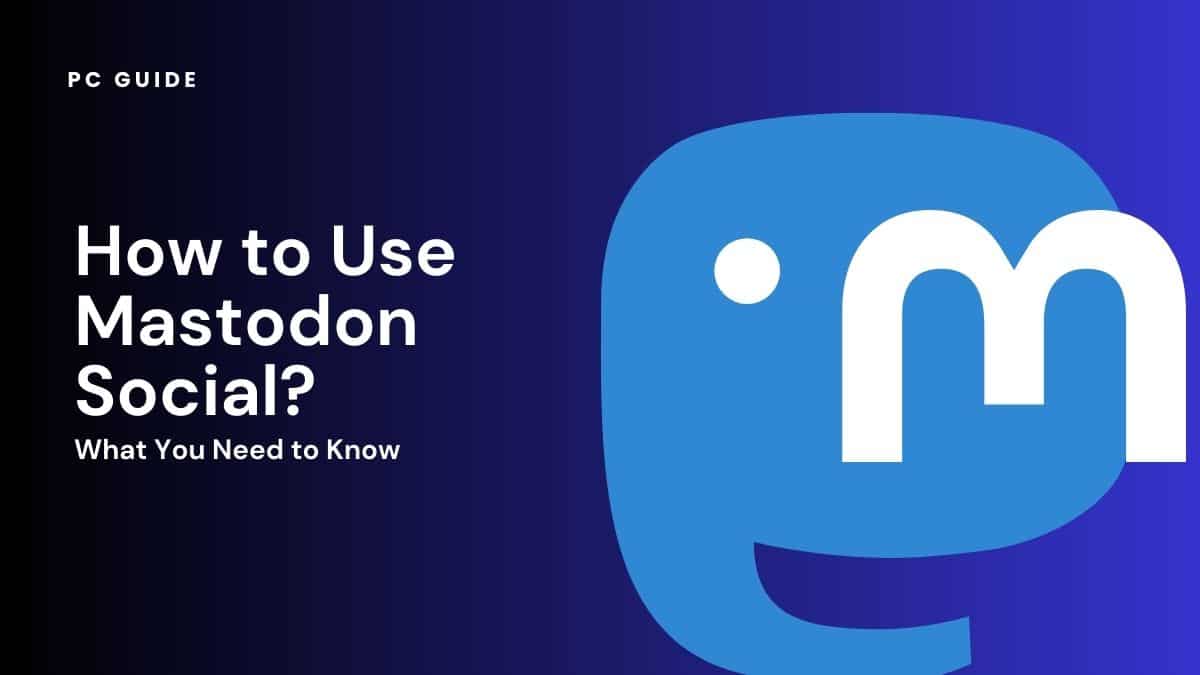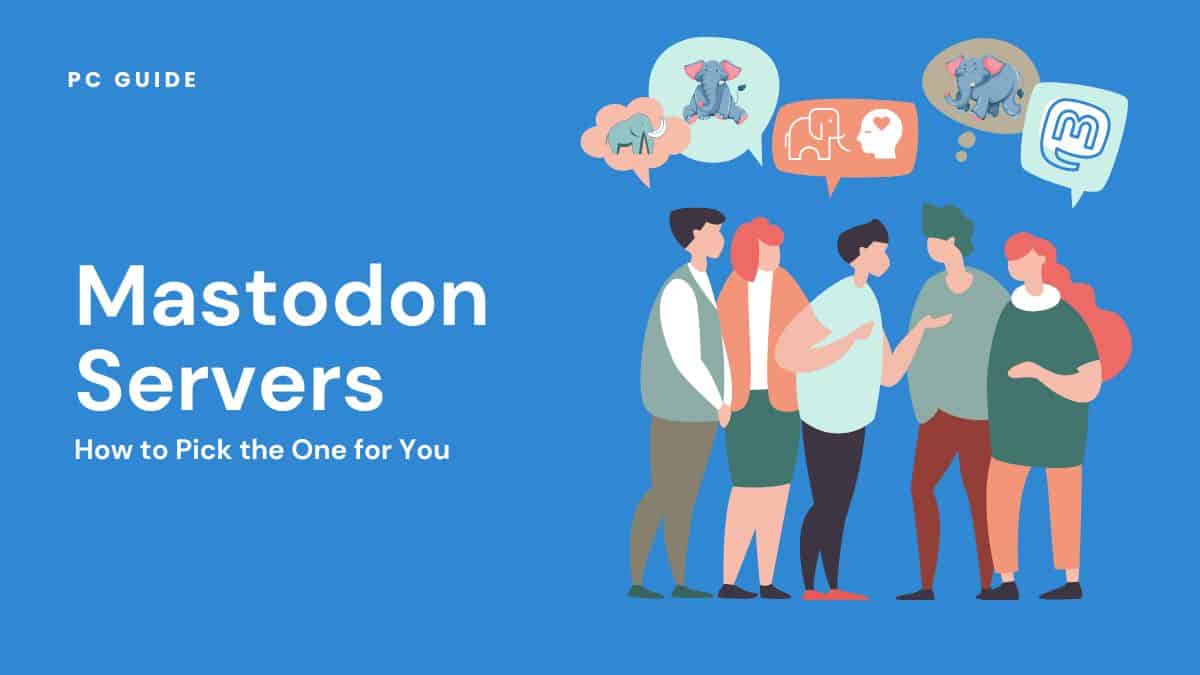Is Mastodon Safe? What Do You need To Know?
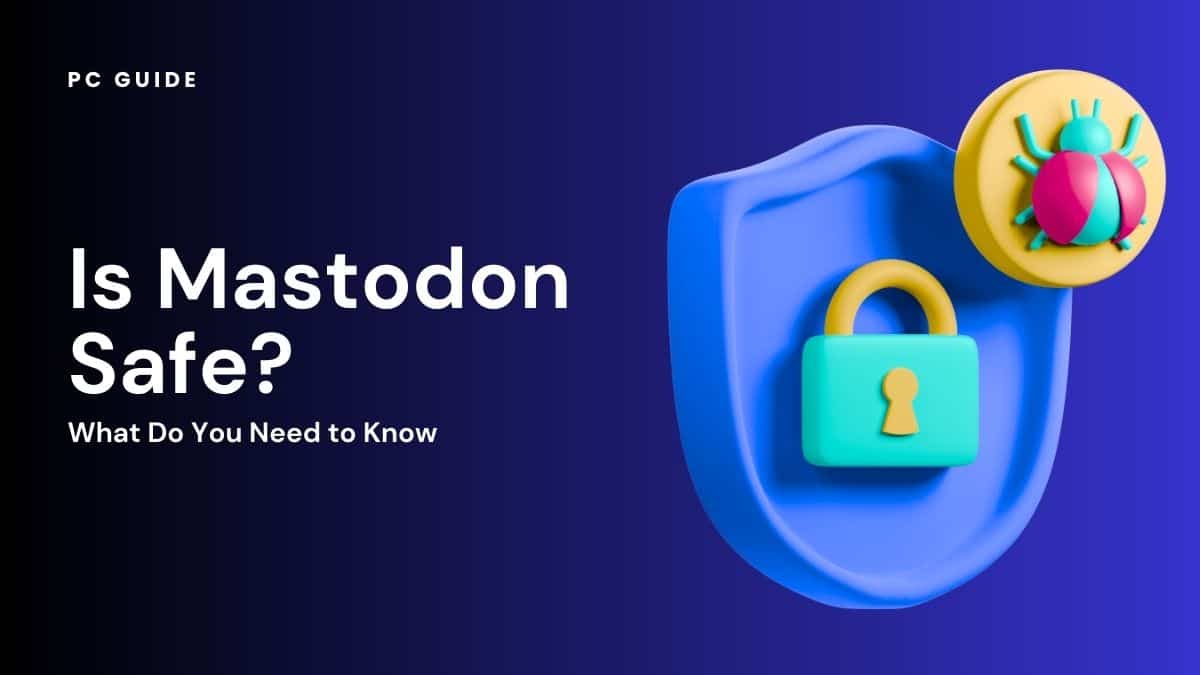
Table of Contents
Social media allows us to connect with different people worldwide, which we all love. But the issue arises when people face security and data privacy concerns. Mastodon, for instance, is a rising alternative to these popular social media platforms. But since it is open-source and has a decentralized environment, many users wonder whether it, too, is safe.
Let's discuss in the article below whether Mastodon is safe or if it can pose a threat like the others.
Prime Day is finally here! Find all the biggest tech and PC deals below.
- Sapphire 11348-03-20G Pulse AMD Radeon™ RX 9070 XT Was $779 Now $739
- AMD Ryzen 7 7800X3D 8-Core, 16-Thread Desktop Processor Was $449 Now $341
- ASUS RTX™ 5060 OC Edition Graphics Card Was $379 Now $339
- LG 77-Inch Class OLED evo AI 4K C5 Series Smart TV Was $3,696 Now $2,796
- Intel® Core™ i7-14700K New Gaming Desktop Was $320.99 Now $274
- Lexar 2TB NM1090 w/HeatSink SSD PCIe Gen5x4 NVMe M.2 Was $281.97 Now $214.98
- Apple Watch Series 10 GPS + Cellular 42mm case Smartwatch Was $499.99 Now $379.99
- ASUS ROG Strix G16 (2025) 16" FHD, RTX 5060 gaming laptop Was $1,499.99 Now $1,274.99
- Apple iPad mini (A17 Pro): Apple Intelligence Was $499.99 Now $379.99
*Prices and savings subject to change. Click through to get the current prices.
Getting Started on Mastodon: Timeline, Username, and New Home

After creating a Mastodon account with a unique username, you’ll land on your ‘new home’. This is your personalized space on the platform. The timeline is one of the main components of this space, showing toots from people you follow and from your wider community.
Remember, what appears on your timeline can influence your experience and perception of safety on the platform. Mastodon gives you control over this through various settings, allowing you to adjust who you see content from and how it’s presented.
Is Mastodon Really Safe?
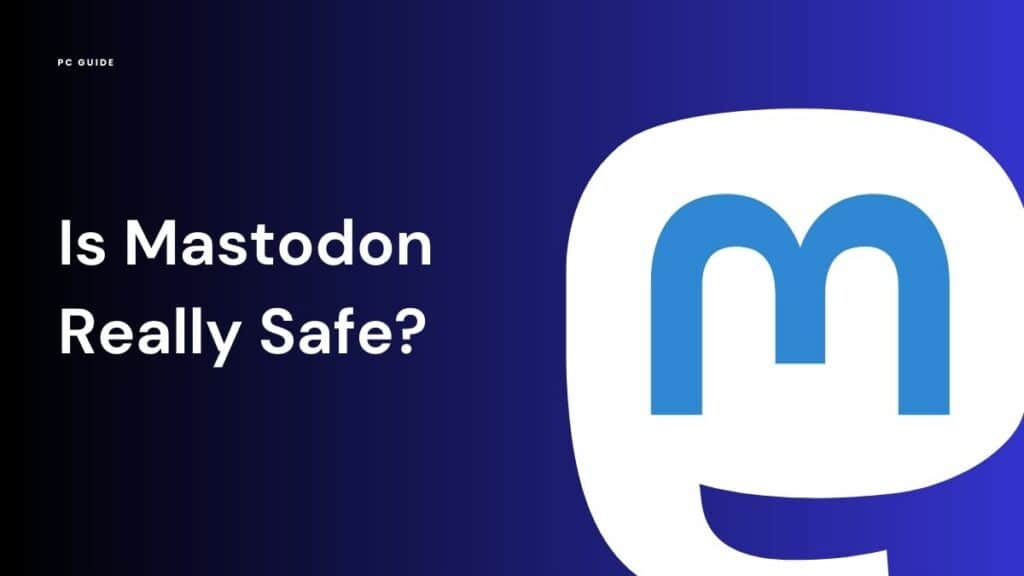
Mastodon is a free platform available on every operating system. It is a crowd-funded project, so it's free of advertisements, which is its major advantage over other platforms.
Despite being a good alternative to most well-recognized social media platforms, it has flaws. Cybersecurity concerns are one major drawback of this rising open-source and decentralized platform. Mastodon isn't safe from any cybersecurity threat and can become a serious issue for its users.
Many prominent researchers have tested this software and found it has vulnerabilities. Few of them even indicated that these vulnerabilities could result in serious breaches in the future. However, luckily, Mastodon immediately acted and got rid of these flaws soon after they were spotted.
But again, it would not be unjust or unreasonable to say that the same issues can arise in the future when their user base grows, and they don't take any counter actions alongside. Cybersecurity experts will have to continue spending their time investigating their research on Mastodon to see how it performs in the future.
Content Warnings, Emojis, and Ad-Free Experience: How Does Mastodon Ensure a Safe User Experience?
Mastodon aims to create a user-friendly environment that’s respectful of all its users. The platform uses features like content warnings, which allow users to hide sensitive or potentially triggering content behind a warning label. This empowers users to decide what they want to see.
Emojis are a fun and expressive way to communicate on Mastodon. They’re a popular feature, but remember that how you use them can impact your visibility and interactions with others.
Finally, one significant advantage of Mastodon is that it’s ad-free. This enhances user safety as it eliminates the risk of malicious ad content and protects user data from being sold to advertisers.
Deciphering the Role of Individual Servers and Instances in Mastodon’s Safety
In the context of Mastodon, an ‘individual server’ or ‘instance’ refers to the different communities within the platform. Each instance can have its own rules, guidelines, and server’s admins, adding a layer of community-specific content moderation. This decentralization can offer more control over what content is seen and shared, in turn potentially enhancing online safety.
However, be aware that if you interact with users from a different instance, the content moderation rules of their instance apply. Therefore, it’s essential to understand the rules of your own instance as well as any others you engage with.
Understanding Mastodon’s Security Measures
Mastodon, a decentralized social network, has implemented several security measures to protect its users. One of these is two-factor authentication, a feature that adds an extra layer of security to your Mastodon account.
When enabled, you’ll need to provide a second piece of information – usually a code sent to your phone number – to log in. This makes it harder for unauthorized users to gain access to your account.
How Does Mastodon Handle User Data?
Unlike many other social networks, Mastodon takes a different approach to user data. The platform does not rely on ads for revenue, which means it doesn’t need to collect and analyze your preferences to serve targeted advertisements. Instead, Mastodon is funded by its users and other third-party sources. This model allows Mastodon to prioritize user privacy, making it a safer alternative for those concerned about their data being misused or sold.
Choosing the Right Mastodon Server
When you sign up for a Mastodon account, you’ll need to choose a server. Each Mastodon server, or “instance,” has its own rules and community guidelines. Some servers may have stricter rules against harassment and offensive content, while others may be more lenient. It’s important to select a server that aligns with your values and comfort level.
Mastodon’s Approach to Direct Messages
Direct messages on Mastodon work a bit differently than on other platforms. While you can send private messages to other Mastodon users, these messages are not end-to-end encrypted. This means that the administrators of your Mastodon server can potentially access your direct messages. If privacy is a concern for you, it’s recommended to use another method for sensitive conversations.
Navigating the Fediverse: How Do Toots and Hashtags Impact Your Safety on Mastodon?
Mastodon, like many social platforms, uses specific tools to help users communicate and navigate the platform. ‘Toots’ and ‘hashtags’ are two such tools that you may be familiar with. In the fediverse, a toot is similar to a tweet on Twitter. It’s the primary way of sharing your thoughts, opinions, or anything you want to say.
Hashtags, on the other hand, allow your toots to be discoverable by others. By attaching a hashtag to your toot, it can be searched and seen by others using the same hashtag. The implication for safety is that the content of your toots and the hashtags you use can influence your visibility on the platform. As always, it’s important to be mindful of what you’re sharing, as any public toot can be viewed by anyone across the fediverse.
Securing Your Mastodon Account: Authenticator Apps and End-To-End Encryption
Two-factor authentication is an extra layer of security that can be activated on your Mastodon account. You can use an authenticator app, like Google Authenticator, to generate verification codes for this process.
End-to-end encryption is another security measure that Mastodon employs, especially for direct messages. It ensures that only you and the person you’re communicating with can read the messages, even if they are intercepted.
Understanding Mastodon’s Algorithm, Display Names, and Profile Metadata
Unlike many other social media platforms, Mastodon’s algorithm doesn’t dictate what you see. Instead, it shows toots chronologically, offering a fairer, less manipulated online environment. This means users have more control over their content consumption, which can be safer in terms of exposure to harmful content.
In terms of personal visibility, Mastodon lets you customize your display names and profile metadata. Remember, what you choose to display publicly can impact your online safety and privacy.
Mastodon vs. Other Social Media Platforms: How Does It Compare to Twitter and Reddit?
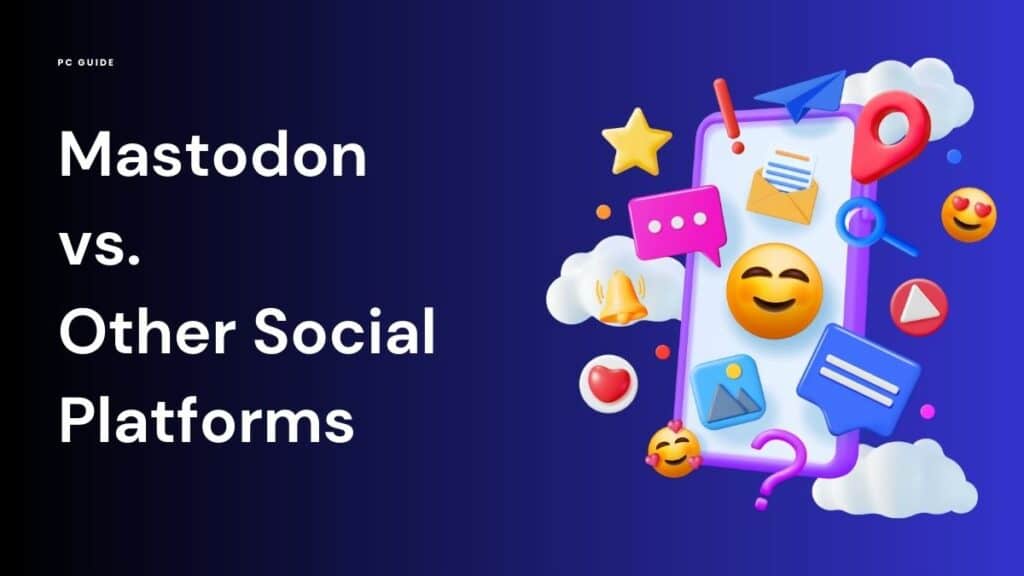
Twitter and Reddit are two of the most popular social media platforms around, but how does Mastodon compare when it comes to safety? Like Twitter, Mastodon allows for short posts (toots), but offers more control over who sees these posts and lacks the advertising and algorithmic timeline manipulation that Twitter employs.
Compared to Reddit, Mastodon’s emphasis on community-specific servers (akin to Subreddits) and volunteer-led moderation allows for more localized and responsive handling of content issues.
FAQs
Who Invented Mastodon?
A German software developer, Eugen Rochko created Mastodon as an alternative to Twitter. He grew up using Facebook, Instagram, Twitter, and other American-owned social media platform but disliked them. So, he created his social media platform to counter American dominance in the software technology industry.
Can I use Mastodon on my iPhone or Android device?
Yes, Mastodon has apps available for both iPhone and Android devices. You can also access Mastodon through a web browser on any device.
How do I make my Mastodon account private?
You can make your Mastodon account private by adjusting your privacy settings. You can choose who can see your posts, who can follow you, and who can send you direct messages.
How does Mastodon handle harassment and other forms of abuse?
Each Mastodon server has its own rules and moderation policies. If you experience harassment or abuse, you can report it to the administrators of your server. They can act, such as warning the offending user or removing them from the server.
Can I sign up for Mastodon using a third-party service?
No, Mastodon doesn’t support sign-ups via third-party services. You need to create a new account directly on Mastodon.
Conclusion
Most cybersecurity experts regard Mastodon as a more robust alternative to many reigning social media platforms. Its open-source, decentralized structure offers a level of data privacy that contributes to a safer online environment. This, coupled with features like individual servers (instances), toots, hashtags, and fediverse, fosters a sense of community and control. Safety measures like two-factor auth and unique passwords, as well as the option for selective visibility through display names and profile metadata, further enhance user security.
However, Mastodon is not without its challenges. Aspects like content moderation may vary across different instances, and the server’s admins hold the capacity to view DMS if necessary. Moreover, with an increasing number of celebrities joining the platform, the need for stringent safety measures is ever more important.
So while Mastodon presents a unique, privacy-focused alternative in the internet’s vast social landscape, users should always stay informed and proactive about their online safety.

